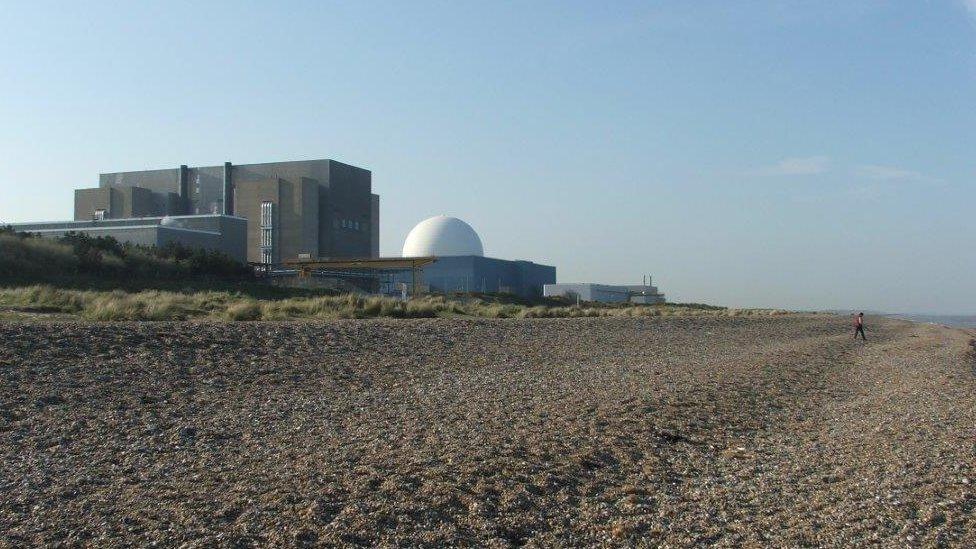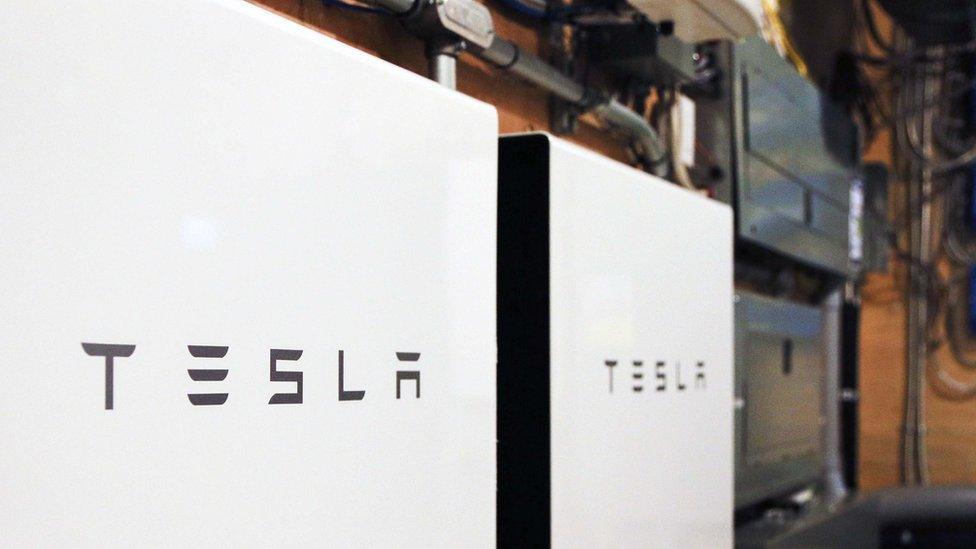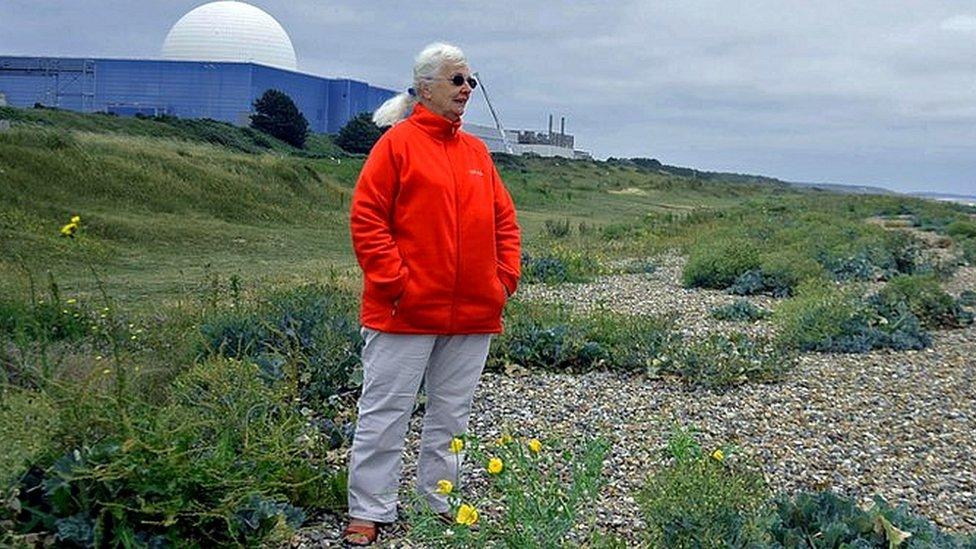Coronavirus: Sizewell B could cut power output as UK energy demand slumps
- Published

Sizewell B has more flexibility to alter its output than older nuclear plants
The UK's most modern nuclear power station could be partially powered down as the National Grid looks to manage lower energy demands.
EDF Energy is in discussions to reduce the output at its Sizewell B plant in Suffolk to balance a 20% drop in energy use caused by the coronavirus lockdown.
One of the two turbines at Sizewell B could temporarily be taken offline, halving its output to 600MW.
EDF said it would "explore ways it can respond flexibly" to help the grid.
The technology in use at Sizewell B, which opened in 1995, means it has more flexibility to alter its output than older nuclear plants.
Since the coronavirus pandemic led to the closure of many business premises, industrial demand for energy has plummeted, though domestic use has risen.
The National Grid Electricity System Operator, which balances supply and demand, said it was in discussions with the industry to manage the "unprecedented situation".
A spokesman said it was considering fixed-term contracts with generators to compensate them for reducing power output, replacing the system of daily payments.
"If utilised, this approach would give additional options to our control room engineers, as well as being a more cost efficient and secure outcome for consumers too," he said.
Neither company would reveal the potential cost of any such agreement, though the National Grid typically spends £1bn a year on payments to ensure supply meets demand.
A spokesman for EDF said: "EDF is pleased to explore ways it can respond flexibly and help the grid minimise the cost to consumers of ensuring system stability."
The power company is consulting over plans to build a new nuclear power station, Sizewell C, on the Suffolk coast.

Find BBC News: East of England on Facebook, external, Instagram, external and Twitter, external. If you have a story suggestion email eastofenglandnews@bbc.co.uk, external
- Published4 May 2020

- Published7 July 2019
